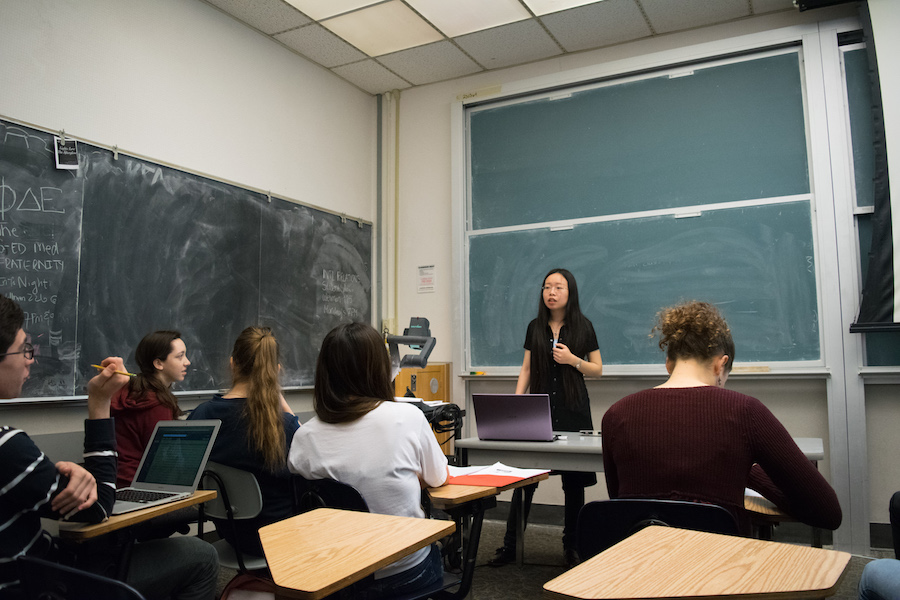
Students take steps toward trusting their teaching assistants.
At a public research university such as UC Davis, it is not uncommon for students to depend heavily on the guidance and instruction of their teaching assistants (TA’s). However, many TA’s are young graduate students having recently completed their undergraduate educations, and this lack of an age gap sometimes leads to conflict between students and TA’s.
“It is important for students to remember that a young TA may be precisely who they should be learning from as this individual remembers quite clearly what it was like to be an undergraduate,” said Ph.D. student in archaeology Kevin Smith. “If you, as a TA, are pretty much in the same age group as the class, then [you can] use humor and pop-culture references that help your class relate to you and the material. As long as you are using humor in a way that keeps an energetic, upbeat, respectful and educational atmosphere, your students will like working with you.”
For Smith, a TA’s main focus and obligation should be their position as instructor of their section. One way to cultivate a positive environment is by respecting the students and using humor while effectively conveying required material. Smith also urges TA’s to remain humble and enthusiastic.
“Enjoy the opportunity to teach and convey the passion you have for your subject,” Smith said. “Remember, you are young, you don’t know everything! It is okay to learn from your students once in a while!”
According to second-year environmental policy major Joe Kaylor, TA’s and students should be able to form a productive and professional environment despite potential age gaps.
“There are plenty of student leaders that are able to organize, plan and execute productive events or sessions with their peers, so it really comes down to the university being able to select grad students with leadership qualities that are able to do that,” Kaylor said. “The age isn’t a huge issue — it’s whether or not they have the personal skills past the course knowledge to be able to hold a productive forum in their discussion sessions.”
Kaylor has found that many TA’s lack attributes of notable communication and interpersonal skills necessary for an efficient discussion.
“Although there have been exceptions, most of my TA’s haven’t been a huge help, but I don’t want to pin that all on them since they have the same stresses of school and finances that we do,” Kaylor said. “Maybe more training for how to be a successful leader would be helpful, but it’s a tough problem to solve easily.”
For first-year biological sciences major Bailey Boka, the small difference in age is not the root of the disagreements that may arise between students and TA’s; the issue has more to do with being confident in one’s abilities as an instructor.
“Sometimes I notice that some TA’s overcompensate for the lack in age gap by acting overly superior towards their students, making it difficult for students to feel comfortable asking questions and learning from them,” Boka said. “Just because they are young, does not always mean that students think they lack experience and insight. We just have to respect one another.”
Although it is easy to jump to conclusions about people, Smith urges students and TA’s alike to enjoy their time in the classroom and take it as an opportunity to learn from each other.
“The college years will not last forever and it is up to you to find your own hunger for knowledge now,” Smith said.
Written by: Gillian Allen — features@theaggie.org




